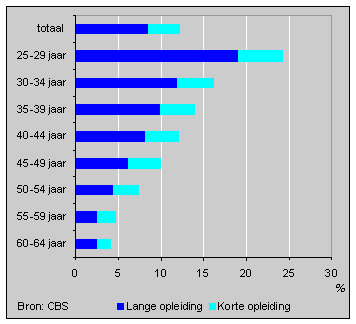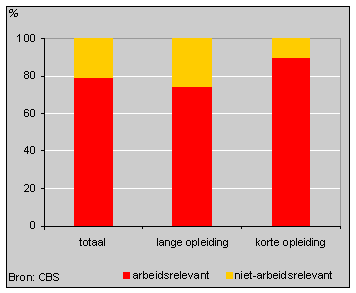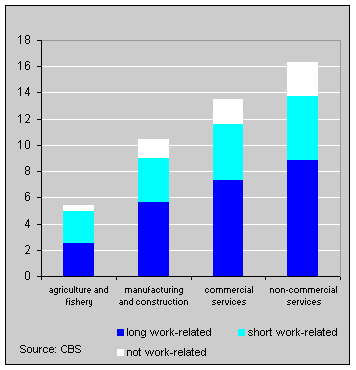One in eight 25-64 year olds in education

On an average day in 2001, twelve percent of the population aged between 25 en 64 years were enrolled in some form of education. Eight percent were in education lasting for six months or longer and four percent were in shorter forms of education. Education participation was around the same for men and women.
Share of 25-64 year-olds in education on an average day, 2001

The younger, the more likely to be in education
Young people are more likely to be doing a course than older groups: they have often yet to complete their formal education. Twenty-four percent of 25-29 year-olds were in some form of education; for 40-44 year-olds the share was half this, and by the age of 60-64 years only four percent were doing a course in 2001.
Four out of five courses work related
Four out of five 25-64 year-olds in education were doing a work-related course. In other words, a course relevant for a certain job or required to get a job. Others went on courses for reasons not related to the labour market, but connected with a hobby or for their own fulfilment.
Short courses were more often work related than longer courses. In 2001 only one in ten short courses were not labour related.
Education participation of 25-64 year-olds by labour relevance, 2001

Services sector accounts for many course participants
People employed in non-commercial services, which includes the government, are the most likely to be doing some form of training. In 2001 fourteen percent of employees in this sector were on a course which was relevant for their present or a future job. In commercial services this was twelve percent, while in agriculture and fishery only five percent were in labour-related education.
Education participation of 25-64 year-old workers by sector of employment, 2001
